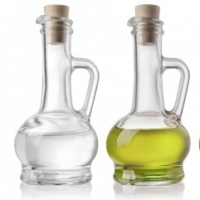Myths From The Weight Loss Hawks
Fact: This kind of diet looks to get most of the daily required amount of calories from protein foods, such as dairy products and meats, and a very small portion taken from foods that have a lot of carbs, i.e. potatoes, fruits, pasta, and bread. The main problem with this kind of diet is that many of the most common foods that people like to eat are excluded, which makes it easy for this kind of dieter to get bored or frustrated. When boredom and frustration take their toll, the end of the diet is usually close behind. Another problem with this diet is that the carbohydrates recommended usually lack in essential nutrients, while advocating that the dieter eat cheese and bacon which will raise cholesterol levels.
What it all comes down to is that high protein/low-carb diets result in fast weight loss in some people, but it isn't just fat that is lost. People lose some of their lean muscle mass as well, and a lot of water, as the kidneys now need to work harder to excrete the extra waste that is coming in from fat and protein. The stress added to your kidneys is not healthy at all and, in the long run, leads to dehydration, headaches, feelings of dizziness and nausea. Before starting a long-term diet, you would do well to discuss it with your doctor. If you are really set on dieting, try a balanced diet first, because it will help you lose weight without hurting your bodily systems.
Myth: Permanent weight loss can be achieved with fad diets.
Fact: This is another common myth among the weight loss hawks. Like any other diet that tells you to cut this or that from your daily meals, fad diets are not healthy for you. The main thing to remember with any diet is to make sure you get the body all the proteins, minerals, and calories it needs. Diets that cut out foods without regard for your body's needs cannot be healthy for you. Fad diets fail to deliver on the promise of permanent weight loss because people will always crave the foods they are not supposed to be eating and will always end up breaking the rules and the diet itself.
The key to making weight loss permanent is more exercise and avoiding food that makes you fat without nourishing your body. It has been confirmed through extensive studies about the importance of exercise and a well-balanced diet.
Myth: Low-fat or fat-free food is always a good choice.
Fact: The only low fat foods that are also low in calories are fruits. The rest of the huge low-fat or non-fat group are not a safe choice if you are dieting. These products may have added sugar, starch or flour to make them taste better, which means extra calories that do not belong into your diet. So make sure you carefully check the list of ingredients on packages whenever you decide to buy low-fat or fat-free products.
Myth: Making the switch to vegetarian foods will help you lose weight and keep you healthy.
Fact: I know this is a hard pill to swallow, but no food plan will work for you unless you take charge of your eating and make sure that everything that goes down your throat is the right kind of food. The key here is to be absolutely sure that the vegetarian diet will give your body all the nutrients and calories it needs. You could be bringing in trouble for yourself down the road by eating foods that are loaded with empty calories, not providing nutritional value, outside of filling up your stomach.
Since plants tend to have a lower concentration of nutrients than meat, you will have to eat more food than before to make up for this difference. Not to mention that a strictly vegetarian diet will not get you enough vitamin B12, vitamin D, iron, calcium and zinc. These vitamins and minerals are taken mostly from dairy products and eggs in a regular diet, but true vegetarians can't touch those. You'll have to rely on the few and uncommon vegetables that can provide these substances.
Myth: Dairy products make you fat and cause heart problems.
Fact: Thanks to modern medicine, everybody knows that eating a lot of dairy products is a surefire path to high blood pressure and stroke, although a large group of French people refuse to die, despite the large quantities of cheese and wine they consume.
Dairy products are the main source of calcium that keeps your bones strong and healthy. It is a must for children and should not be overlooked by adults either. Dairy products also contain vitamin D, which is crucial to maintaining the normal levels of calcium and phosphorus in your bloodstream.
If you want to avoid gaining weight from dairy products, choose low-fat or non-fat brands. There are enough of those around. If you are lactose-intolerant, drink soy or rice milk and eat lactose-free cheeses. Soy milk does not taste exactly the same as regular milk, but it's still good and nutritious. The fat-free and lactose-free cheese taste will probably go unnoticed, or atleast eventually, since you are usally eating it with something else anyway.
Butter and margarine are the only dairy products you should worry about. These absolutely have large levels of fat, saturated and trans fat included. Still, if you must eat these, at the very least, choose the butter over the margarine. Margarine is an over-processed fat that is not at all good for you. Butter may be somewhat fattier in content, but it's definitely the healthier of the two.
Related Articles
-
How Do I Exercise to Reduce Cellulite?
If you have excess cellulite then you no doubt have tried to find the
-
Weight Loss Secrets Book Reveals What You Really Need to Do to Lose Fat!
Weight Loss Secrets Book Reveals What You Really Need to Do to Lose Fa
-
Celebrity Weight Loss - Why Are So Many People Interested In Their Stories?
This article explains why a lot of people enjoy reading about how vari
-
Raspberry Ketones Review
Raspberry ketones are a compound of a red raspberry. It is conside
-
The Diet Solution Program Free Download - Get rid of body fat
Do you want to keep fit? Do you want to lose weight? Of course, we wan
-
Best Known Natural Slimming Pills To Get In Shape
Owing to various reasons, men and women tend to lose proper body shap
- DON'T MISS
- Lose weight or lose your job?
- Medifast Diet – Your Gateway to Effective Weight Reduction
- The Best Supplement To Lose Weight
- Why Getting A Slim Habit Is Much Better Than Dieting
- Try These Belly Fat Tricks To Get A Flat Tummy Really Fast & Finally Have A Trim & Toned Beach Body To Be Proud Of! - Ever Loss
- How Many Calories Can You Burn Spring Cleaning in 2015?
- 8 Easy Ways To Lose Weight Without Dieting
- 31 Day Fat Loss Cure - 31 Day Fat Loss Cure Scam
- Keeping a food diary is an excellent weight loss tool
- The Secrets of Weight Loss and Why This Unique System Works Fast!




